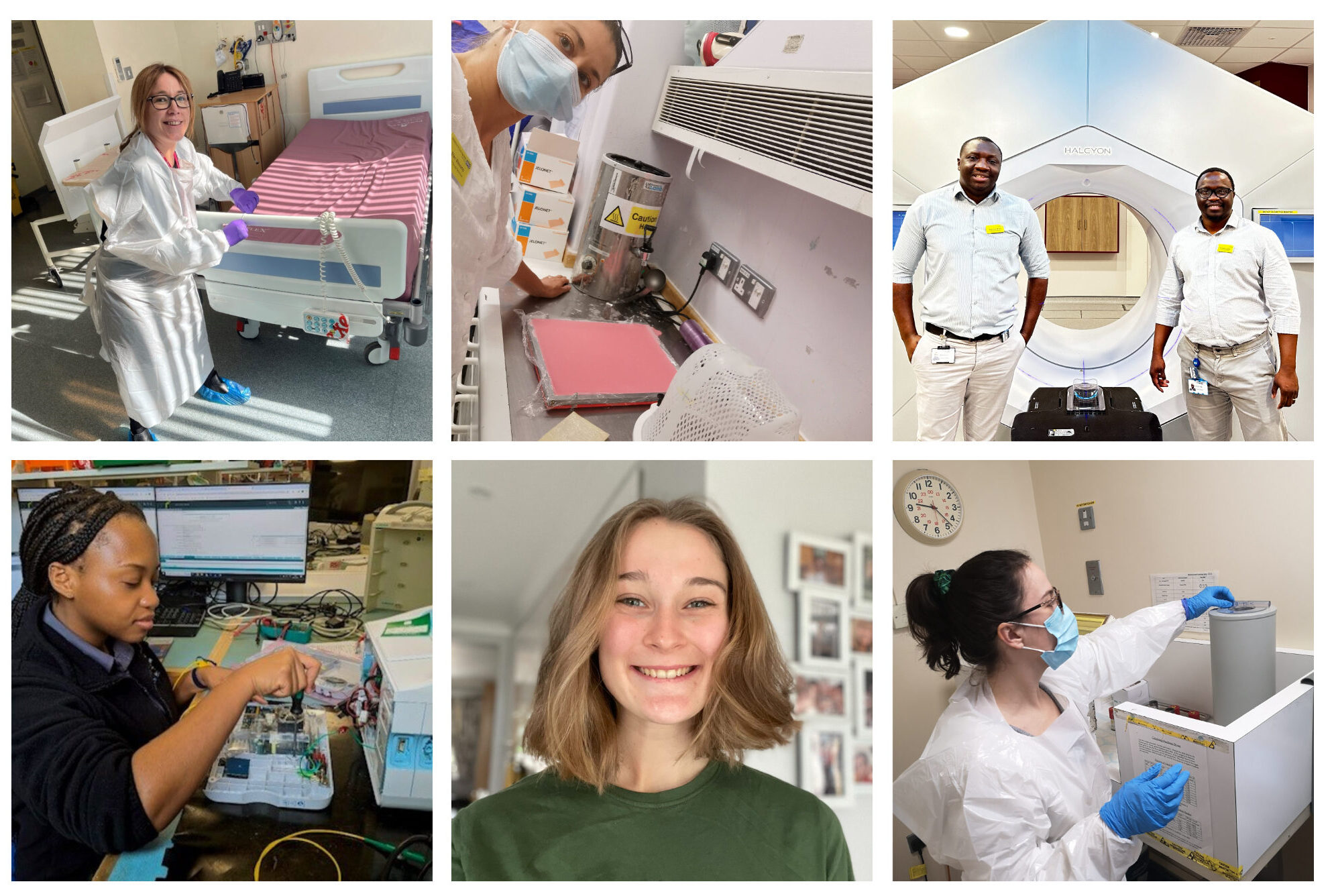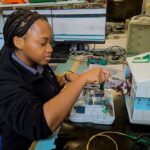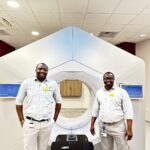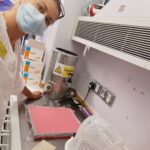
Healthcare Science Week (11-15 March) gives us the chance to celebrate the diversity of our workforce and the importance of science in healthcare, with more than 55,000 NHS staff working across over 50 scientific specialisms and professional groups.
Using science in their everyday working lives, they help address our greatest health challenges and shape innovative technological advancements to ensure that people are living happier, healthier and longer lives. Healthcare science staff also play a huge part in delivering over a billion diagnostic investigations and treatment interventions a year across the UK, accounting for 80% of NHS diagnostics tests.
To celebrate the week, we spoke with just a few colleagues who work in healthcare science here at MTW about their careers:
Ellen Wescomb – Senior Clinical Technician in Radiotherapy Physics
I’ve been working with the Radiotherapy Physics department for nearly 20 years now, working mostly with patients producing custom-made accessories for their radiotherapy treatments, or working behind the scenes checking their individually tailored treatment plans.
The highlight of my career so far has to be the people – both patients and colleagues! I’m lucky to be able to work with a fantastic and expert team, and I get to meet all kinds of wonderful patients during their journey.
Renee Lujilibana – Clinical Engineer
 Clinical engineers play an essential role in ensuring the safe and effective use of medical technology in healthcare. Our responsibilities cover a wide range of activities to optimise the safe use of medical equipment.
Clinical engineers play an essential role in ensuring the safe and effective use of medical technology in healthcare. Our responsibilities cover a wide range of activities to optimise the safe use of medical equipment.
For example, a heart monitor might be reported as being faulty, so it would be a clinical engineer’s responsibility to attend to the device and use skills like fault-finding to diagnose the fault, repair and then calibrate the device to ensure the clinical staff have accurate reading to aid therapies and care for our patients.
Solomon Moyo and Sandile Lunga – Clinical Scientists in Radiotherapy Physics
 As clinical scientists, we apply physics principles to the field of healthcare, specifically in the area of radiotherapy for the treatment of cancer.
As clinical scientists, we apply physics principles to the field of healthcare, specifically in the area of radiotherapy for the treatment of cancer.
We ensure the safe and effective use of medical technology such as x-ray machines and radiation therapy equipment to deliver the treatments.
The best thing about being a clinical scientist in Radiotherapy is knowing we’re contributing to advancements in medical technology and directly impacting patients’ lives through precise and effective treatments. Our roles also allow for continuous learning and staying at the forefront of cutting-edge technologies in the field of radiotherapy.
Robyn Ansley – Trainee Healthcare Scientist, Cardiac Physiology
 I have always had a passion for learning new things and in my current role as Cardiac Healthcare Scientist, there is always something new! I enjoy the challenge of learning about electrocardiograms, and I like to think of it as learning a new language.
I have always had a passion for learning new things and in my current role as Cardiac Healthcare Scientist, there is always something new! I enjoy the challenge of learning about electrocardiograms, and I like to think of it as learning a new language.
Healthcare scientists, although not widely recognised, are crucial in conducting about 80% of diagnostic tests in the NHS. Working in the cardiology department every day brings me joy as I contribute to treating patients and making a positive impact. It’s a rewarding field for those passionate about healthcare and making a real difference in people’s lives.

